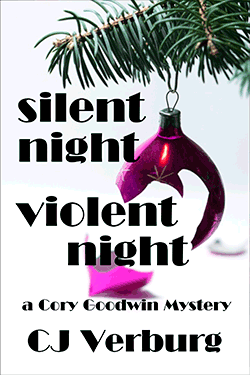 Here at Boom-Books we’re excited to be preparing for the Spring 2017 launch of ANOTHER NUMBER FOR THE ROAD by C J Verburg. While the manuscript undergoes some final tweaks, we’re asking: How do we connect this unique story with readers who’ll love it?
Here at Boom-Books we’re excited to be preparing for the Spring 2017 launch of ANOTHER NUMBER FOR THE ROAD by C J Verburg. While the manuscript undergoes some final tweaks, we’re asking: How do we connect this unique story with readers who’ll love it?
Book 2 in C J Verburg’s Cory Goodwin Mystery series couldn’t be more different from Book 1, SILENT NIGHT VIOLENT NIGHT. With great ambivalence, Cordelia Goodwin Thorne has quit journalism in the hope of saving her marriage. But on a nostalgia trip from Boston to Paris, where her first overseas job ended with a wedding ring, a reunited 60s rock-protest band sweeps Cory into a deeper, deadlier search for lost time.
Like th e Cory Goodwin mystery series, the publishing industry has changed radically these past few years. Even if we were sure what worked for the previous book, which centered on rivalries among New England scientists, would it work for this one? In our algorithm-dominated era, how do you define the target audience for a mystery that jumps from a posh Boston hotel to the Eiffel Tower, a Seine cruise, and a small-town Strawberry Festival? How do you classify a narrator who’s the daughter of a New York private detective, the wife of a cosmetics executive, a stringer for a popular-culture magazine, and the media consultant for an upscale international exchange program?
e Cory Goodwin mystery series, the publishing industry has changed radically these past few years. Even if we were sure what worked for the previous book, which centered on rivalries among New England scientists, would it work for this one? In our algorithm-dominated era, how do you define the target audience for a mystery that jumps from a posh Boston hotel to the Eiffel Tower, a Seine cruise, and a small-town Strawberry Festival? How do you classify a narrator who’s the daughter of a New York private detective, the wife of a cosmetics executive, a stringer for a popular-culture magazine, and the media consultant for an upscale international exchange program?
As a micropublisher, what’s Boom-Books’s best course to introduce this distinctive new mystery to a welcoming audience?
Exploring that question required our own recherche du temps perdu. We started with some good advice posted by blogger J B Simmons in A Successful Book Launch: Fuel To Reach The Stars back in October 2014. Simmons recommends four steps before launch and four more on the big day:
 1. Send out advance copies and requests so you have reviews ready to go with the book.
1. Send out advance copies and requests so you have reviews ready to go with the book.
2. Prepare the book’s (& author’s) Amazon page, and use the preorder page to make sure everything looks right.
3. Go on tour: offer ARCs, interviews, and guest posts to relevant bloggers.
4. Set up a Goodreads giveaway.
5. When you publish, buy your own first copy and check it carefully.
6. Announce the launch to your mailing list — your most important step.
7. Use social media to notify the world: only a couple times per platform, staggered over a few days.
8. Ignore the rankings. Start writing your next book.
More insights came from author and marketing expert Beth Bacon in a November 2014 DBW post entitled “Ignore the Expensive Launch.” As Bacon sees it, the bells-whistles-&-fireworks launch we all remember (& covet) from the heyday of traditional publishing is beside the point in the digital age. Now that shelf space is virtually unlimited, authors (and publishers) have time to build their audience rather than try to win it in a single shot.
Bacon describes the yo-yo experience of one author she worked with, whose launch was followed by “two months of sales that barely moved the meter.” The author tried a free promotion on Amazon, which moved books and also — briefly — made her #1 in her category. When sales fell again, she sought Bacon’s help, and they adopted a longer-term promotion strategy.
“Every month, she does a single email promotion, she regularly monitors her customer reviews and author profile and she enters awards contests whenever possible. This steady, consistent plan has grown her sales and keeps them high.
“. . . Low early sales do not indicate a lack of customer interest. All they indicate is a lack of awareness among readers. On the Internet, generating awareness takes time. And luckily, authors have the luxury of time on the Internet because they’re not competing for shelf space there. So . . . instead of worrying about your launch, create a strategy that includes regular, consistent price promotions, positive reviews by influential bloggers and a long list of customer reviews.”
In the 21st century, publishers have finally recognized that readers buy a book because of its author, not its publisher. That revelation has been a mixed blessing for authors. Yet even as publishers happily share their traditional marketing responsibilities, it’s crucial for everyone involved — in a book as in a band — to listen, advise, inspire, and work together.

